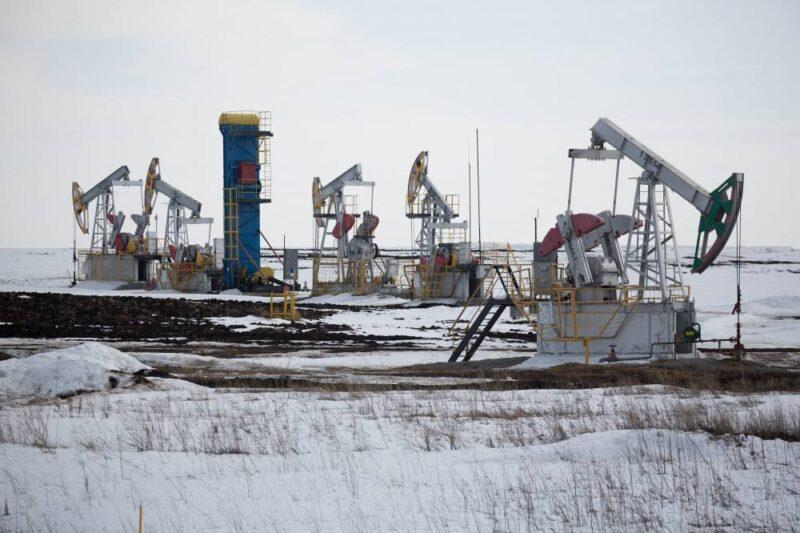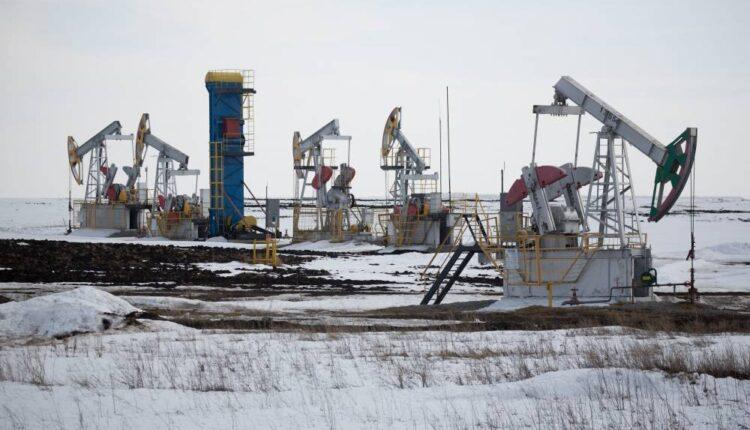
- Brent crude was up by 93 cents, or 2.8%, at $33.98 a barrel by 0431 GMT after falling more than 3% on Monday.
- U.S. crude was up by 79 cents, or 3.03%, at $26.87 a barrel, having dropped nearly 8% in the previous session.
Oil pumping jacks, also known as "nodding donkeys", operate in an oilfield near Almetyevsk, Tatarstan, Russia, on Wednesday, March 11, 2020.Andrey Rudakov | Bloomberg via Getty Images
Oil prices gained on Tuesday as hopes rose that the world's biggest producers of crude will agree to cut output as the coronavirus pandemic crushes demand, even as analysts warn a global recession may be deeper than expected.
Brent crude was up by 93 cents, or 2.8%, at $33.98 a barrel by 0431 GMT after falling more than 3% on Monday. U.S. crude was up by 79 cents, or 3.03%, at $26.87 a barrel, having dropped nearly 8% in the previous session.
The world's main oil producers including Saudi Arabia and Russia are likely to agree to cut output at a meeting on Thursday, although that would depend on the United States doing its share, sources told Reuters.
But the threat of a major recession hangs over the market due to the halt of much economic activity as a result of the coronavirus pandemic, with half the global population under some form of lockdown or social distancing measures.
"Oil producers have to cut deeply and quickly if they want to avert total saturation of oil markets," Eurasia Group said.
Worldwide oil demand has dropped by as much as 30%, or about 30 million barrels per day, coinciding with moves by Saudi Arabia and Russia to flood markets with extra supply after an agreement on withholding output fell apart.
Oil prices slumped on Monday after Saudi Arabia and Russia delayed a meeting to agree on output cuts till Thursday.
The Organization of the Petroleum Exporting Countries (OPEC) and other producers including Russia, a grouping known as OPEC+, had been curtailing production in recent years amid a rapid expansion of U.S. output that made the country the world's biggest crude producer.
There are also questions over whether the U.S. would join any coordinated action.
U.S. President Donald Trump said on Monday that OPEC had not asked him to push domestic oil producers to cut their production to buttress prices. He also said that U.S. output was declining in response to falling prices.
"I think it's happening automatically but nobody's asked me that question yet so we'll see what happens," the president told a press briefing on Monday afternoon.
Coordinated action by U.S. oil producers to reduce output would typically be a violation of antitrust laws.
A global recession that economists in a Reuters poll say is under way will likely be more serious than expected a few weeks ago due to the viral outbreak, the latest survey showed.
"We expect energy prices to hover around current levels until economic activity recovers," Capital Economics said in a note.
Source: cnbc.com

